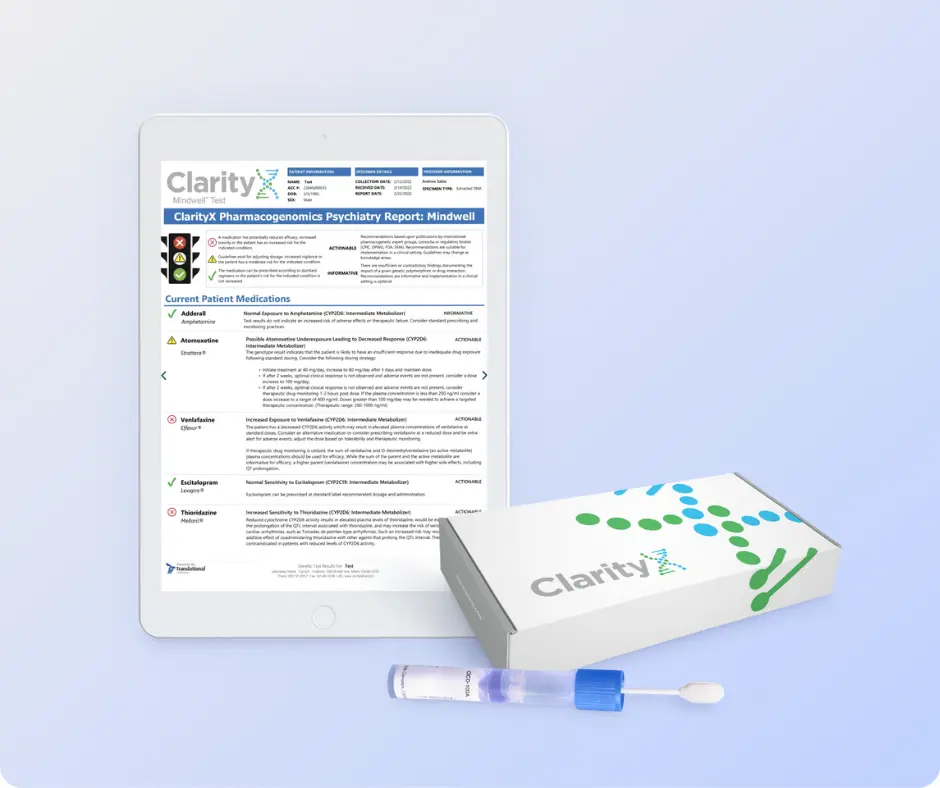Key Highlights
- Abilify® and Seroquel® are both atypical antipsychotic medications used to treat mental health disorders such as schizophrenia, bipolar disorder, and major depressive disorder.
- Abilify (aripiprazole) is a partial agonist at dopamine and serotonin receptors, while Seroquel (quetiapine) has antagonist effects on these receptors.
- Both medications have similar indications for use, but Abilify also has a unique indication for treating irritability associated with autistic disorder.
- When comparing efficacy, both Abilify and Seroquel have been shown to be effective in treating schizophrenia. Seroquel may be more effective for managing certain conditions like bipolar depression.
- Abilify is available in a wider variety of dosage forms, which may make it easier for some individuals to use.
- The cost and insurance coverage for Abilify and Seroquel can vary, but there are savings options available, such as coupons and discounts. There are generic versions of both medications available.
- Common side effects of both medications include weight gain, sedation, and dry mouth, but the incidence and severity may differ between individuals. Seroquel has caused slightly higher rates of weight gain in some instances, but both medications are considered more weight-neutral than other medications in the class.
Introduction
Abilify (aripiprazole) and Seroquel (quetiapine) are two medications classified as atypical antipsychotics. These medications are commonly used in the treatment of mental health disorders such as schizophrenia, bipolar disorder, and major depressive disorder. These disorders affect a significant portion of the population and can profoundly impact individuals' overall health and quality of life. According to statistics, almost 20 million Americans have experienced at least one major depressive episode, while bipolar disorder affects over 4% of the population at some point in their lifetime. Schizophrenia is also one of the leading causes of disability worldwide.
The approach to treating these mental health disorders can vary for each patient and often involves a combination of different treatment types, including medications, therapy, and lifestyle changes. Antipsychotic medications like Abilify and Seroquel play a crucial role in managing the symptoms of these disorders and improving overall functioning and quality of life for individuals.
By understanding the key differences between Abilify and Seroquel, individuals can make informed decisions about which medication may be better for them based on their specific needs and preferences. This blog will explore the similarities and differences between Abilify and Seroquel, including their mechanism of action, conditions treated, efficacy, side effects, drug interactions, and cost. This information will help individuals navigate the decision-making process and work with their healthcare provider to determine the most appropriate treatment option for their mental health needs.
Understanding Abilify and Seroquel
Abilify and Seroquel are both classified as atypical antipsychotic medications commonly used in the treatment of mental health disorders such as schizophrenia, bipolar disorder, and major depressive disorder. These medications target specific neurotransmitters in the brain, helping regulate mood, behavior, and cognition. Abilify contains the active ingredient aripiprazole, while Seroquel contains quetiapine. These medications have different mechanisms of action, which can influence their effectiveness and potential side effects.
What is Abilify?
Abilify, also known by its generic name aripiprazole, is an atypical antipsychotic medication used in the treatment of mental health disorders such as depression, bipolar disorder, and schizophrenia. It works by acting as a partial agonist at dopamine and serotonin receptors in the brain. This means that it can both stimulate and block these receptors to help regulate the transmission of these neurotransmitters.
Abilify is available in multiple doses as an oral tablet and solution, an orally disintegrating tablet, an injection, and the newest formulation, Abilify MyCite, which is an oral tablet with a built-in sensor that helps monitor medication adherence and other factors through an app. Abilify is approved by the FDA for the treatment of schizophrenia, bipolar disorder, and major depressive disorder as an adjunct therapy. It is also approved for the treatment of irritability associated with autistic disorder.
What is Seroquel?
Seroquel is an atypical antipsychotic used to treat conditions like schizophrenia and bipolar disorder. It works by affecting certain neurotransmitters in the brain. Understanding Seroquel's mechanism of action is crucial when comparing it with other medications like Abilify.
Key Differences Between Abilify and Seroquel
Mechanism of Action and Efficacy: Abilify is a partial agonist at dopamine receptors, while Seroquel acts as an antagonist. Abilify may have a slightly lower risk of weight gain than Seroquel, making it a preferred choice for some patients. When it comes to clinical effectiveness in the treatment of schizophrenia and bipolar disorder, studies have shown significant differences in outcomes between the two medications. For instance, Seroquel has been shown to be more effective in the management of bipolar depression. Understanding these distinctions can help healthcare providers tailor treatment plans to individual needs.
Mechanism of Action
Abilify functions as a partial agonist of dopamine D2 receptors, regulating dopamine levels in the brain. In contrast, Seroquel is an antagonist on multiple receptors, including serotonin and dopamine. These medications target psychotic symptoms in schizophrenia and bipolar disorder via distinct pathways, impacting neurotransmitter activity. These differences can impact response depending on the specific condition being treated.
Dosage Forms and Administration
Abilify is available as standard oral tablets, dissolving tablets, liquids, and injectable formulations like Abilify Maintena, which healthcare providers prescribe. Seroquel comes in oral tablet form, including immediate-release and extended-release tablets. Abilify offers a wider range of administration options, which may make it easier for some individuals to use.
Dosage generally depends on the condition being treated, with gradual titration recommended to minimize side effects. Adherence to the prescribed dosage and administration schedule is crucial for optimal treatment outcomes and should be closely monitored by healthcare professionals.
Conditions Treated by Abilify and Seroquel
Abilify and Seroquel are commonly prescribed for schizophrenia and bipolar disorder. Abilify is also used for major depressive disorder and autism spectrum disorders. On the other hand, Seroquel is effective in treating psychotic symptoms, mania, and insomnia related to bipolar disorder. These medications address a range of mental health disorders and are known for their efficacy in managing symptoms such as psychosis, mania, and depression. Your healthcare provider can guide you on the best treatment option based on your condition.
Mental Health Disorders Addressed
Abilify and Seroquel are commonly prescribed for a range of mental health disorders. Abilify is primarily used in the treatment of schizophrenia, depression, and the management of mania associated with bipolar disorder. It’s also often used to support the management of autism and Tourette’s disorder. Seroquel is effective for schizophrenia and bipolar disorder-associated mania or depression. Both medications exhibit efficacy in managing psychotic symptoms and improving the quality of life for patients.
Understanding the specific mental health conditions each drug targets is crucial for determining the most suitable treatment option for individuals seeking support for their mental well-being.
Off-label Uses
For off-label uses, both Abilify and Seroquel have shown effectiveness in treating various conditions beyond their approved indications. Abilify is sometimes used off-label to manage symptoms of ADHD, OCD, and PTSD. On the other hand, Seroquel may be prescribed off-label for anxiety disorders, insomnia, and Tourette's syndrome. Healthcare providers may consider these options based on individual patient needs and responses.
Efficacy Comparison: Which Works Better?
Comparing the effectiveness of Abilify and Seroquel involves analyzing clinical studies and patient testimonials to determine which medication offers superior outcomes. Understanding their efficacy profiles can guide individuals in selecting the more suitable treatment option.
Clinical Studies and Outcomes
In clinical studies comparing Abilify and Seroquel, remission rates were similar in the treatment of schizophrenia, while Seroquel showed improved efficacy in managing depression associated with bipolar disorder.
Both drugs demonstrated significant differences in side effect profiles. Aripiprazole had slightly lower rates of significant weight gain. Patients on quetiapine experienced more sedation. Overall, individual responses to each medication varied, highlighting the importance of personalized treatment plans.
Side Effects and Safety Profile
Abilify and Seroquel exhibit different side effect profiles. Common side effects of Abilify include nausea and dizziness, while Seroquel may cause sedation and dry mouth. Both Abilify and Seroquel have the potential to cause tardive dyskinesia (involuntary movements) and metabolic side effects like weight gain and increased blood sugars. Discussing these potential side effects with your healthcare provider to make an informed decision about the safest option for your treatment is crucial.
Common Side Effects
Some common side effects associated with both Abilify and Seroquel include dizziness, drowsiness, and dry mouth. These medications can also lead to weight gain and sedation in some individuals. Seroquel has been associated with slightly higher rates of weight gain, but both Seroquel and Abilify are considered less likely to cause significant weight gain than other atypical antipsychotic medications.
Involuntary movements, or dyskinesias, are less likely to occur with these medications compared with older ‘typical’ antipsychotics, but the risk still exists. Notifying your doctor if any involuntary movements or tremors occur is important, as these movements have the potential to become irreversible. Differences in the rates of dyskinesia between Abilify and Seroquel are not well-defined. Nausea and insomnia are also reported by some patients taking these drugs.
It's important to consult your healthcare provider if you experience any persistent or bothersome side effects while on either medication. Regular monitoring and communication with your healthcare team can help manage these potential side effects effectively.
Serious Risks and Warnings
Serious risks and warnings associated with Abilify and Seroquel must be carefully considered. These medications may pose a risk of weight gain, adverse effects on blood pressure, and tardive dyskinesia (involuntary movement). Patients should be monitored for potential cognitive impairment, particularly in older adults. Additionally, the potential for drug interactions should not be overlooked, making it crucial for healthcare providers to review all medications before prescribing Abilify or Seroquel.
Drug Interactions and Contraindications
Abilify and Seroquel may interact with various drugs, affecting their efficacy or causing adverse effects. It's crucial to inform your healthcare provider about all medications, supplements, or herbal products you are taking. Abilify is impacted by other medications that affect both CYP3A4 and CYP2D6 enzymes, while Seroquel is impacted more specifically by medications that affect CYP3A4. These enzymes process medications and can lead to higher or lower concentrations. Dosing adjustments may be needed to ensure efficacy or avoid side effects, depending on the other medications or over-the-counter products you use.
Drug interactions can impact treatment outcomes significantly, potentially leading to complications or reduced effectiveness. Always consult with your healthcare provider before starting or stopping any medication to avoid potential risks.
Medications to Avoid
It is crucial to be aware of medications that should not be taken together with Abilify or Seroquel to prevent dangerous interactions. Certain drugs like specific antidepressants, antipsychotics, or CNS depressants (e.g., alcohol) may lead to adverse effects when combined with these medications. Always consult your healthcare provider before starting any new medication to avoid potential risks. Prioritize your health and well-being by discussing any concerns or questions about drug interactions with your medical professional.
Safe Drug Combinations
When considering safe drug combinations with Abilify or Seroquel, it's crucial to consult your healthcare provider. Certain combinations have been studied specifically for their positive impact, like SSRIs (fluoxetine, escitalopram, or sertraline, for instance) with Abilify for the management of depression. Combination choices should be based on individual health needs, existing conditions, and potential interactions.
Avoid self-medication and always seek medical advice to ensure the best treatment outcomes and avoid potential risks. Your healthcare provider can provide personalized recommendations tailored to your specific health requirements. Always prioritize safety when combining medications.
Cost and Insurance Coverage
When evaluating Abilify vs. Seroquel, it’s helpful to consider insurance and coverage information. When considering costs, insurance plays a crucial role. Coverage varies, impacting out-of-pocket expenses. Before choosing between these medications, understanding your insurance plan is essential. Consulting your healthcare provider or insurance company can provide clarity on coverage specifics. Factors like tier placement and generic alternatives influence overall expenses. Prior authorization may also be necessary for certain drugs, affecting accessibility and cost. Researching insurance coverage beforehand can help you make an informed decision.
Pricing Overview
Abilify and Seroquel have varying costs based on factors like dosage and insurance coverage, with cash prices potentially reaching as high as $1400 monthly. Generic Abilify (aripiprazole) standard tablets are often the least costly option. Abilify Maintena and Seroquel XR are pricier due to their extended-release formulations. Comparing prices at different pharmacies or using insurance benefits can help manage costs. It's essential to consult healthcare providers for accurate pricing details and potential discounts available to alleviate the financial burden.
Frequently Asked Questions
Can I switch from Abilify to Seroquel or vice versa?
Considering their different mechanisms of action, switching from Abilify to Seroquel or vice versa should be done under medical supervision. Abrupt changes can impact treatment efficacy and side effects. Consult your healthcare provider before making any switch.
How long does it take for each medication to work?
Both medications can start showing effects within 1 to 2 weeks, but it may take 4 to 6 weeks for a full effect to be realized. Individual responses vary, as do the timelines for specific conditions being managed, so consult your healthcare provider for personalized guidance on the timeline for each medication's effectiveness.
Are there any alternatives to both medications?
The alternatives to Abilify and Seroquel include other antipsychotic medications like Risperidone, Olanzapine, or Quetiapine. Non-pharmacological options such as therapy and lifestyle modifications are also highly recommended.
Can I consume alcohol while taking Abilify or Seroquel?
Consuming alcohol while taking Abilify or Seroquel can increase drowsiness and impair judgment. It's advisable to avoid alcohol as it may worsen side effects and the condition being treated (e.g., worsened depression). Consult your healthcare provider for personalized advice on alcohol consumption with these medications.
Conclusion
In conclusion, understanding the differences between Abilify and Seroquel is crucial in making an informed decision about your treatment. Both medications have their unique mechanisms of action, side effects, and efficacy profiles. Consulting with your healthcare provider to discuss your specific condition, medical history, and individual needs will help determine which option may be better suited for you. Remember, the effectiveness and safety of any medication can vary from person to person, so personalized medical advice is essential in choosing the most suitable option for your well-being.
https://www.ncbi.nlm.nih.gov/pmc/articles/PMC4502587/d
https://www.ncbi.nlm.nih.gov/books/NBK448156/#
https://pubmed.ncbi.nlm.nih.gov/23810019/
https://ajp.psychiatryonline.org/doi/10.1176/appi.ajp.2020.177901
https://www.ncbi.nlm.nih.gov/pmc/articles/PMC9077426/
https://www.ncbi.nlm.nih.gov/pmc/articles/PMC3109728/
https://www.ncbi.nlm.nih.gov/pmc/articles/PMC8112003/
https://dailymed.nlm.nih.gov/dailymed/drugInfo.cfm?setid=c040bd1d-45b7-49f2-93ea-aed7220b30ac
https://dailymed.nlm.nih.gov/dailymed/drugInfo.cfm?setid=0584dda8-bc3c-48fe-1a90-79608f78e8a0





